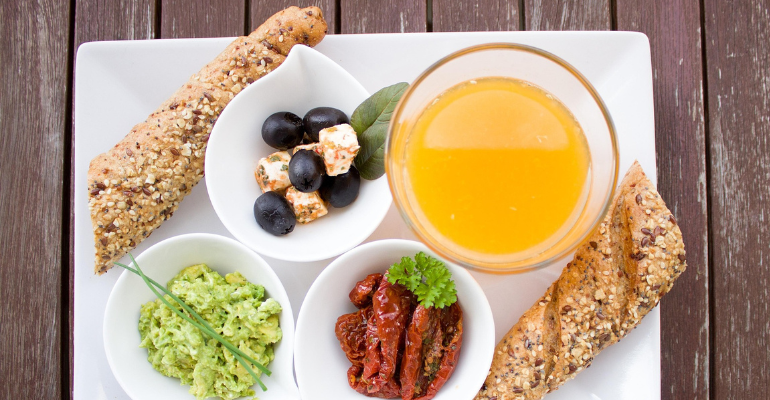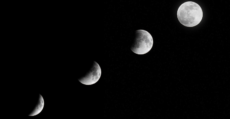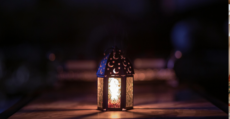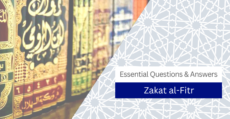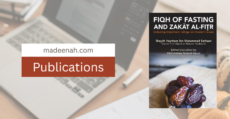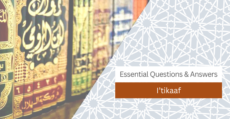Reference: 48 suāl fis-ṣiyām
In the name of Allāh, ar-Raḥmān (the most merciful), ar-Raḥīm (the bestower of mercy).
The actions that invalidate a fast that have been mentioned in the Qur’ān are three: eating, drinking and sexual intercourse.
The evidence for this is the saying of the most-high:
{So now have relations with them [your wives] and seek what Allāh has ordained for you (offspring), and eat and drink until the white thread (light) of dawn appears to you distinct from the black thread (darkness of night), then complete your ṣaum (fast) till the nightfall.} [02:187]
First & Second: Eating and drinking.
[This invalidates the fast] regardless of whether it is ḥalāl (permissible) or ḥarām (impermissible); beneficial to the body or harmful; regardless of whether it is small in amount or large.
Based upon this, smoking cigarettes invalidates [the fast] even though it is impermissible and harmful to the body.
Some scholars even said that if a man swallowed a bead, intending to break his fast, then it invalidates his fast even though there is no [nutritional] benefit from it to the body. Similarly, if he ate some impure bread dough, intending to break his fast, then it invalidates his fast even though it is harmful to the body.
Third: Sexual intercourse.
This is the most serious type of action that invalidates the fast; if this is done during fasting hours, a kaffarah (penalty of expiation) is obligated upon him:
- To emanicapte a slave.
- If unable to do so, fast two months consecutively.
- If unable to do so, feed sixty poor people.
Fourth: The discharge of semen due to sexual desire.
If a person does this, then his fast is invalidated; however, he does not have to pay the penalty of expiation, as this is restricted to sexual intercourse.
Fifth: To use injections that fulfil the need of food and drink, i.e. injections that deliver nutrients to the body.
The fast is not invalidated by injections that provide no nutritional value to the body, regardless of whether they are injected through the veins or muscles. This is because they are not classified as eating or drinking, nor do they take the place of food and drink.
Sixth: Intentional vomiting.
If a person intentionally vomits, his fast becomes invalid. If however, it is unintentional, then there is nothing upon him (i.e his fast is correct and valid)
Seventh: Menstrual bleeding or post-natal blood.
If there is a release of menstrual or post-natal blood before sunset – even by a small time – the fast is invalidated.
If however the menstrual or post-natal blood is released after sunset – even by a small time period – then her fast is correct and valid.
المفطرات التي تفطر الصائم
المرجع: 48 سؤال في الصيام
المفطرات في القرآن ثلاثة: الأكل، الشرب، الجماع، ودليل ذلك قوله تعالى:
{فَالآنَ بَاشِرُوهُنَّ وَابْتَغُواْ مَا كَتَبَ اللَّهُ لَكُمْ وَكُلُواْ وَاشْرَبُواْ حَتَّى يَتَبَيَّنَ لَكُمُ الْخَيْطُ الأَبْيَضُ مِنَ الْخَيْطِ الأَسْوَدِ مِنَ الْفَجْرِ ثُمَّ أَتِمُّواْ الصِّيَامَ إِلَى الَّيْلِ} [02 : 187]
فبالنسبة للأكل والشرب سواء كان حلالاً أم حراماً، وسواء كان نافعاً أم ضاراً أو نافعاً أو ضاراً، وسواء كان قليلاً أم كثيراً، وعلى هذا فشُرب الدخان مفطر، ولو كان ضاراً حراماً. حتى إن العلماء قالوا: لو أن رجلاً بلع خرزة لأفطر. والخرزة لا تنفع البدن ومع ذلك تعتبر من المفطرات. ولو أكل عجيناً عجن بنجس لأفطر مع أنه ضار.
الثالث: الجماع.. وهو أغلظ أنواع المفطرات. لوجوب الكفارة فيه، والكفارة هي عتق رقبة، فإن لم يجد فصيام شهرين متتابعين، فإن لم يستطع فإطعام ستين مسكيناً.
الرابع: إنزال المني بلذة، فإذا أخرجه الإنسان بلذة فسد صومه، ولكن ليس فيه كفارة، لأن الكفارة تكون في الجماع خاصة
الخامس: الإبر التي يُستغنى بها عن الطعام والشراب، وهي المغذية، أما الإبر غير المغذية فلا تفسد الصيام سواء أخذها الإنسان بالوريد، أو بالعضلات، لأنها ليست أكلاً ولا شرباً ولا بمعنى الأكل والشرب
السادس: القيء عمداً، فإذا تقيأ الإنسان عمداً فسد صومه، وإن غلبه القيء فليس عليه شيء
السابع: خروج دم الحيض أو النفاس، فإذا خرج من المرأة دم الحيض أو النفاس ولو قبل الغروب بلحظة فسد الصوم. وإن خرج دم النفاس أو الحيض بعد الغروب بلحظة واحدة صحَّ صومها.

